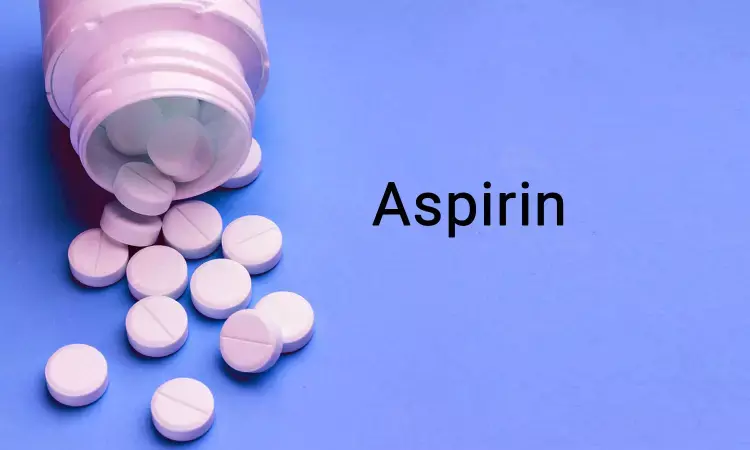- Home
- Medical news & Guidelines
- Anesthesiology
- Cardiology and CTVS
- Critical Care
- Dentistry
- Dermatology
- Diabetes and Endocrinology
- ENT
- Gastroenterology
- Medicine
- Nephrology
- Neurology
- Obstretics-Gynaecology
- Oncology
- Ophthalmology
- Orthopaedics
- Pediatrics-Neonatology
- Psychiatry
- Pulmonology
- Radiology
- Surgery
- Urology
- Laboratory Medicine
- Diet
- Nursing
- Paramedical
- Physiotherapy
- Health news
- Fact Check
- Bone Health Fact Check
- Brain Health Fact Check
- Cancer Related Fact Check
- Child Care Fact Check
- Dental and oral health fact check
- Diabetes and metabolic health fact check
- Diet and Nutrition Fact Check
- Eye and ENT Care Fact Check
- Fitness fact check
- Gut health fact check
- Heart health fact check
- Kidney health fact check
- Medical education fact check
- Men's health fact check
- Respiratory fact check
- Skin and hair care fact check
- Vaccine and Immunization fact check
- Women's health fact check
- AYUSH
- State News
- Andaman and Nicobar Islands
- Andhra Pradesh
- Arunachal Pradesh
- Assam
- Bihar
- Chandigarh
- Chattisgarh
- Dadra and Nagar Haveli
- Daman and Diu
- Delhi
- Goa
- Gujarat
- Haryana
- Himachal Pradesh
- Jammu & Kashmir
- Jharkhand
- Karnataka
- Kerala
- Ladakh
- Lakshadweep
- Madhya Pradesh
- Maharashtra
- Manipur
- Meghalaya
- Mizoram
- Nagaland
- Odisha
- Puducherry
- Punjab
- Rajasthan
- Sikkim
- Tamil Nadu
- Telangana
- Tripura
- Uttar Pradesh
- Uttrakhand
- West Bengal
- Medical Education
- Industry
Ticagrelor, aspirin benefits in TIA outweigh risk over 30-day treatment period: Neurology

China: A recent study in the journal Neurology found that in patients with mild to moderate ischemic stroke or at high risk for transient ischemic attack (TIA), the ischemic benefit of ticagrelor-aspirin outweighs the risk of major hemorrhage throughout the 30-day treatment period. Also, the treatment effect of ticagrelor-aspirin was shown to be present from the first week.
The study was conducted by Yongjun Wang, China National Clinical Research Center for Neurological Diseases, Beijing, China, and colleagues with the objective to investigate the short-term time course benefit and risk of ticagrelor with aspirin in acute mild-moderate ischemic stroke or high-risk TIA in the THALES trial.
In an exploratory analysis of the THALES trial (The Acute Stroke or Transient Ischemic Attack Treated with Ticagrelor and ASA for Prevention of Stroke and Death), the researchers evaluated the cumulative incidence of irreversible safety and efficacy outcomes at different timepoints during the 30-day treatment period.
Major ischemic events defined as a composite of ischemic stroke or non-hemorrhagic death was the efficacy outcome. The safety outcome was major hemorrhage defined as a composite of intracranial hemorrhage and fatal bleeding. Combination of these two endpoints was used to define net clinical impact.
A total of 11,016 patients (5523 in the ticagrelor-aspirin group and 5493 in the aspirin group) were included in the analysis. The mean age was 65 years and 39% were women.
The findings of the study were as follows:
- The reduction of major ischemic events by ticagrelor occurred in the first week (4.1% vs 5.3%; absolute risk reduction 1.15%), and remained throughout the 30-day treatment period.
- An increase in major hemorrhage was seen during the first week and remained relatively constant in the following weeks (absolute risk increase, approximately 0.3%).
- Cumulative analysis showed that the net clinical impact favored ticagrelor-aspirin in the first week (absolute risk reduction 0.97%) and remained constant throughout the 30 days.
"The treatment effect of ticagrelor-aspirin in patients with mild-moderate ischemic stroke or high-risk TIA, was present from the first week," wrote the authors. "Throughout the treatment period, the ischemic benefit of ticagrelor-aspirin outweighs the risk of major hemorrhage, which may support the use of 30 days treatment with ticagrelor and aspirin in these patients."
Reference:
Time Course for Benefit and Risk of Ticagrelor and Aspirin in Acute Ischemic Stroke or Transient Ischemic Attack. Yongjun Wang, Yuesong Pan, Hao Li, Pierre AMARENCO, Hans Denison, Scott R Evans, Anders Himmelmann, Stefan James, Mikael Knutsson, Per Ladenvall, Carlos A Molina, S. Claiborne Johnston. Neurology Apr 2022, 10.1212/WNL.0000000000200355; DOI: 10.1212/WNL.0000000000200355
Dr Kamal Kant Kohli-MBBS, DTCD- a chest specialist with more than 30 years of practice and a flair for writing clinical articles, Dr Kamal Kant Kohli joined Medical Dialogues as a Chief Editor of Medical News. Besides writing articles, as an editor, he proofreads and verifies all the medical content published on Medical Dialogues including those coming from journals, studies,medical conferences,guidelines etc. Email: drkohli@medicaldialogues.in. Contact no. 011-43720751


